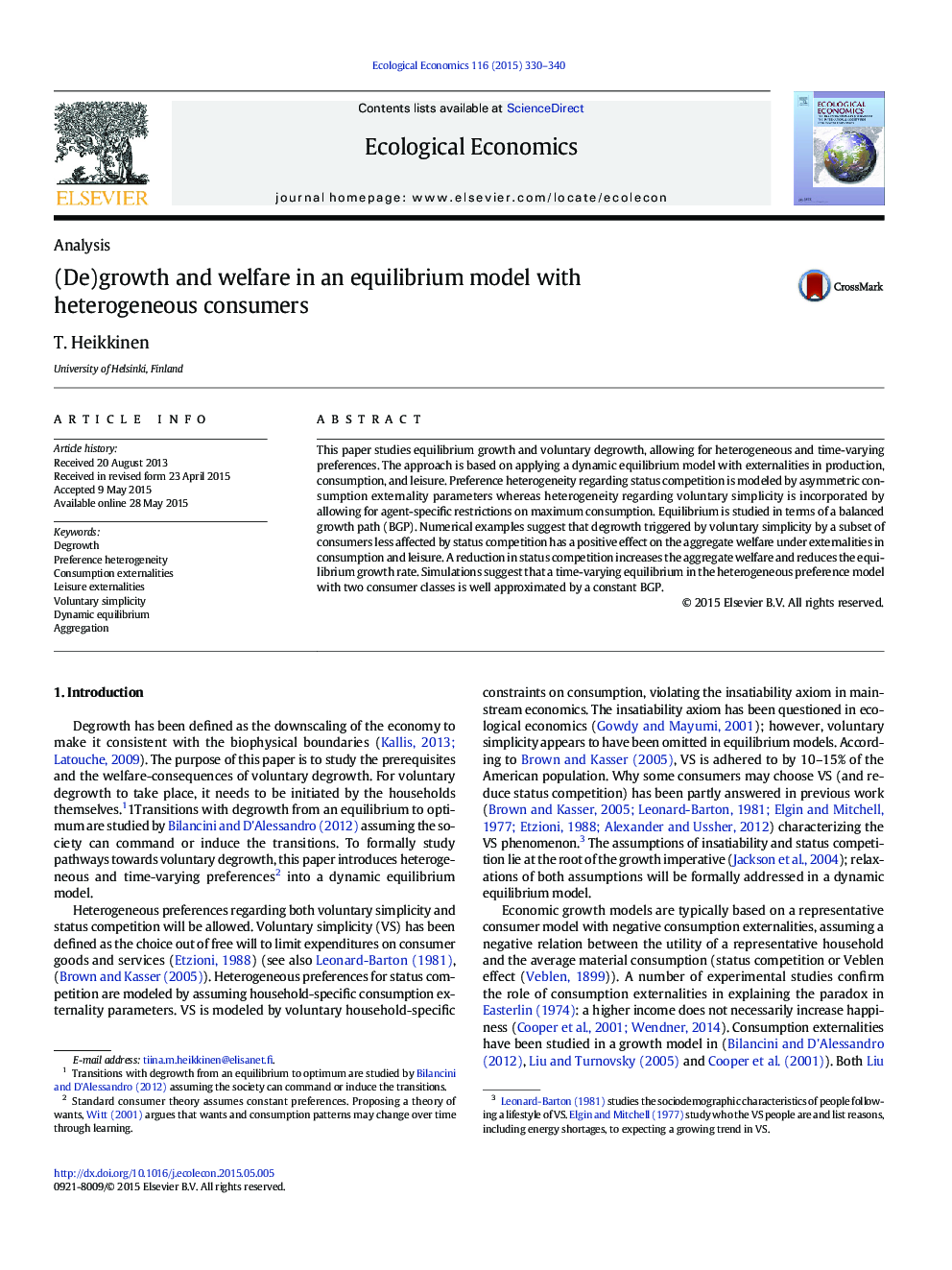| Article ID | Journal | Published Year | Pages | File Type |
|---|---|---|---|---|
| 5049450 | Ecological Economics | 2015 | 11 Pages |
â¢The paper studies degrowth and growth in a dynamic equilibrium model with preference heterogeneity.â¢Preferences are heterogeneous with respect to status competition and voluntary simplicity.â¢A weakening of status consumption increases equilibrium welfare and reduces growth.â¢Simulations suggest that degrowth triggered by voluntary simplicity increases equilibrium welfare under externalities in consumption and leisure.â¢Equilibrium with two consumer classes is well-approximated by a constant balanced growth path.
This paper studies equilibrium growth and voluntary degrowth, allowing for heterogeneous and time-varying preferences. The approach is based on applying a dynamic equilibrium model with externalities in production, consumption, and leisure. Preference heterogeneity regarding status competition is modeled by asymmetric consumption externality parameters whereas heterogeneity regarding voluntary simplicity is incorporated by allowing for agent-specific restrictions on maximum consumption. Equilibrium is studied in terms of a balanced growth path (BGP). Numerical examples suggest that degrowth triggered by voluntary simplicity by a subset of consumers less affected by status competition has a positive effect on the aggregate welfare under externalities in consumption and leisure. A reduction in status competition increases the aggregate welfare and reduces the equilibrium growth rate. Simulations suggest that a time-varying equilibrium in the heterogeneous preference model with two consumer classes is well approximated by a constant BGP.
